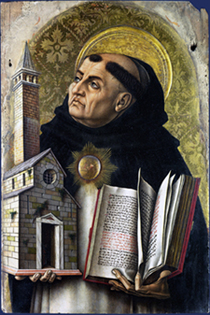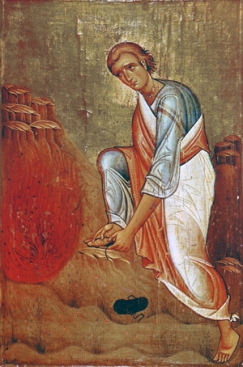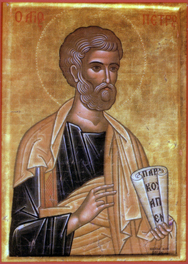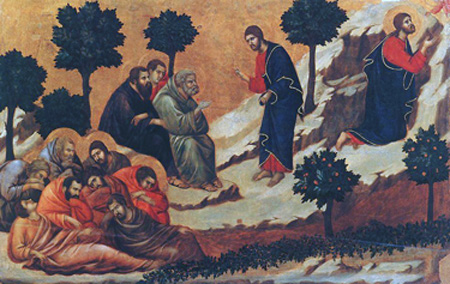“…God’s love has been poured into our hearts through
the Holy Spirit who has been given to us (Rom. 5:5).”
 St. Thomas Aquinas: “The principle of every good is in this: the law of love is the source of spiritual life. It is a natural and manifest fact that the loving heart is inhabited by what it loves. Whoever loves God possesses Him within. ‘He who dwells in charity* dwells in God and God in him (1 John 4:16).’ The nature of love transforms whoever loves into the beloved being. If we love God we will be completely divine. ‘Whoever is united with the Lord becomes one spirit with Him‘ (1 Cor. 6:17).
St. Thomas Aquinas: “The principle of every good is in this: the law of love is the source of spiritual life. It is a natural and manifest fact that the loving heart is inhabited by what it loves. Whoever loves God possesses Him within. ‘He who dwells in charity* dwells in God and God in him (1 John 4:16).’ The nature of love transforms whoever loves into the beloved being. If we love God we will be completely divine. ‘Whoever is united with the Lord becomes one spirit with Him‘ (1 Cor. 6:17).
“Without charity, the soul no longer acts: ‘Whoever does not love abides in death‘ (1 John 3:14). If a person possesses all the gifts of the Holy Spirit, but lacks charity, that person has no life. For it matters not whether one has the grace of tongues, or the gift of faith, or any other gift such as prophecy; these do not bring life without charity. Even if a dead body should be adorned with gold and precious jewels, it nevertheless remains dead. Charity leads to the observance of the divine commandments. …We see a lover do great and difficult things because of the One loved, and that is why the Lord says, ‘If anyone loves Me he will keep My word‘ (John 14:23). Whoever keeps this command and the law of divine love fulfills the whole law. Charity provides protection against adversity. Misfortune cannot harm one who has charity; rather it becomes useful to that person. Misfortune and difficulties seem pleasant to the lover. Charity truly leads to happiness, since eternal blessedness is promised only to those who have charity. For all other things are insufficient without charity. You must note that it is only the different degrees of charity, and not those of any other virtues, which constitute the different degrees of blessedness. Many of the saints were more austere than the apostles, but the apostles excel all the other saints in blessedness because of their higher degree of charity.” (Text reposted from Secret Harbour, by Jeffrey Allen)
————
*CHARITY: The word “charity” is from the latin root ‘caritas’. It embraces the fullness of love; from the, “supreme love to God,” that bears the fruit of the Holy Spirit and the beloved personal qualities of 1 Cor 13.”



